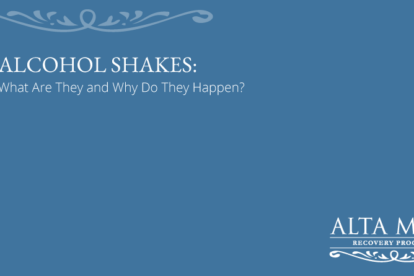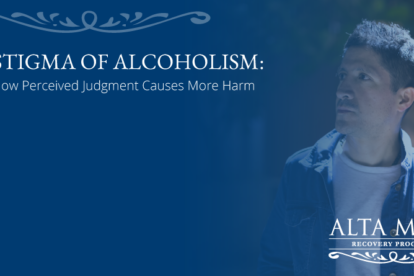Using Cognitive Behavioral Therapy to Control Chronic Relapse

Although there are numerous treatment options for alcoholism, even after treatment the struggle is never over, and people may find themselves falling into a pattern of chronic relapse, feeding into their belief that breaking their addiction is a hopeless fantasy. With the use of cognitive behavioral therapy, you can learn to control your chronic relapse and change the behaviors that feed your addiction, paving the way to a positive future.
“What is addiction, really?” asked researcher and author Alice Miller. “It is a sign, a signal, a symptom of distress. It is a language that tells us about a plight that must be understood.”
Alcohol is the most common and socially accepted drug that exists in our world. In 2014, 87.6 percent of individuals over the age of 18 said that they had drank alcohol at some point in their life, with approximately one in twelve adults currently in the clutches of alcohol addiction.
Despite the numerous available alcohol treatment centers, the underlying problems of the addiction are complex and can manifest even after treatment, ultimately making relapse a strong possibility and pushing many individuals into patterns of chronic relapse.
Why Relapse Is Universal to the Healing Process
Falling back into addiction after treatment can be disheartening. With the amount of emotional and physical pain that can come with the treatment process, feeling like you’ve fallen back to where you started can make getting clean seem impossible. However, tackling alcoholism is a slow process, and relapse is simply one part of it—it doesn’t mean failure. Research shows that relapse rates for alcoholism range from 50 to 90 percent, so know that you are not alone. Every step in the direction of sobriety is a brave one, and knowing that there are many others that are experiencing the same struggles as you should help you understand that relapse is often a universal part of recovery. Every relapse can be used to learn more about yourself, your addiction, and why it has taken hold of your life, which is an extremely important part of the recovery process. One of the most effective tools to help you with this examination is Cognitive Behavioral Therapy (CBT).
What Is Cognitive Behavioral Therapy?
CBT is a combination of psychotherapy and behavioral therapy that seeks to alter the thought processes and behaviors that lie at the core of individuals’ disorders. It was initially designed to prevent relapse in problem drinkers, although it is now widely used as a treatment for numerous mental health issues and addictions. Understanding the thoughts and behaviors that drive us through our daily lives is difficult enough without facing addiction, but when trying to overcome chronic relapse, self-exploration and examination can seem like an impossible task. With the aid of CBT, you can unearth the inner workings of your mind and the connections that they have to your relapses.
At the core of CBT lies the idea that the meanings we give the feelings and events in our lives are what guide our actions, even at an unconscious level. Without a proper analysis of these meanings, we will continue to be at the mercy of the negative thought patterns that push us through our life, and never truly break free of them. Using the therapist-client relationship that CBT centers around, new strategies to deal with these problems are developed. Once the negative emotions and thought processes tied to the disorder or addiction are altered, individuals can better understand how and why their illness affects them the way that it does and change the way that they feel and act.
Using Cognitive Behavioral Therapy to Control Chronic Relapse
When it comes to chronic relapse to alcohol, one of the biggest contributors is emotional regulation. It is widely believed that the inability to properly control emotions is one of the biggest contributors to alcoholism and relapse, and studies have suggested that emotional regulation skills can be used to predict individual alcohol use both during treatment and at the follow-up period afterward. In particular, the ability to cope with negative emotions was connected to alcohol use after treatment, highlighting the importance of understanding how to respond to the negative events that take place in your life and get a hold of the emotions surrounding them. Without this understanding, relapsing becomes a much likelier possibility.
With the aid of CBT, alcoholics can work with their therapist to pinpoint the negative thought patterns and emotions that are causing them to relapse. Even after quitting, all that it takes is one bad day to throw your mind into a negative, stressed state and have you reaching for the bottle once again. Using CBT, you can better understand what’s going on in your head during these moments and alter the way that you react to them.
Ultimately, the most important moments in the life of a recovering alcoholic are the moments that lie immediately prior to relapse—walking past the bar after a long stressful day at work, having someone offer you a drink at a family gathering. In order to break free from chronic relapse, you must take a close look at the thoughts and emotions that you feel during these moments and change how you deal with them in order to prevent them from leading you down the path of addiction once again.
Changing Your Behavior for a Positive Future
Despite what anyone might say, alcoholism is a disease of the brain that takes control of people from all walks of life and over time, its negative effects will continue to take their toll on your brain. Trying to break free of the pattern of chronic relapse can seem like a hopeless ordeal, and without a deep understanding of the feelings and thoughts that are feeding the pattern, you might easily find yourself trapped in the hands of your addiction.
With the use of CBT in a safe, non-judgmental environment, you can better understand how and why you continue to succumb to your addiction and change the behaviors that underlie it. Alcoholism is a constant struggle, and relapse is something that will always be a possibility, but with the right tools and coping skills, you can learn to face the triggers of your addiction and avoid falling back into its clutches.
Alta Mira offers comprehensive addiction rehabilitation programs that utilize cognitive behavioral therapy for alcoholics that find themselves chronically relapsing into their addiction. If you or a loved one is trying to break free from chronic alcoholism relapse, contact us today to learn more about how our programs can help reveal the underlying causes of this disorder and teach the coping skills necessary to deal with them.






